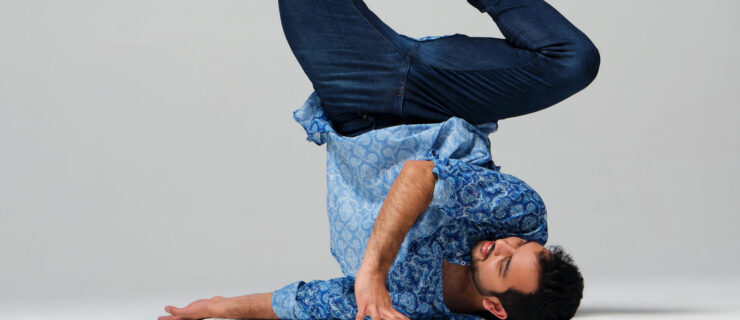How to Use Mantras to Boost Your Performance
As a mental-performance coach, Jaclyn Ellis has seen firsthand how the right mantra can transform a performer. “I work with an Irish dancer who has a lot of what I call ‘What if’ thinking. ‘What if I fall? What if the judges don’t like me? What if I collide with someone onstage?’ ” says Ellis, who works with Peak Performance Sports. Everything changed when the dancer started using a few specific mantras: “I perform for me, not to make others happy,” “I choose to embrace the unknown” and “I am in control of my performance.”
Want some of that increased focus (and decreased anxiety) for yourself? Developing your own mantras and knowing when to use them can help keep you in the zone—or get you out of your own way—when you need to perform your best.
What Is a Mantra?
The Sanskrit word “mantra,” which means “mind vehicle,” originates from Hinduism and Buddhism, says Nicolette Wilson-Clarke, a psychotherapist and certified yoga teacher in the UK. “Ancient spiritual teachers crafted sounds that had specific energetic properties,” she says.
In the modern context of performance psychology, mantras are used as declarations of competence. “I think of mantras as short, simple centering statements of affirmation and intention,” says Miriam Rowan, a Boston-based clinical psychologist who works with dancers. “It’s a way to focus the mind on one thing in the moment—like a mission statement that’s personal to the dancer.”
Make Them Work for You
To use a mantra, you can simply repeat it out loud or in your head at any time you feel the message would be helpful. But unless your mantra is very brief and simple (no more than three words max), avoid turning to one while onstage, says Rowan: “You don’t want to increase your cognitive load at a time when you need to be thinking about music, technical cues and choreography.”
Instead, repeat a mantra during the hours leading up to curtain to calm your nerves and increase your confidence.
Ellis adds that you might also incorporate mantras into your post-performance routine. “It’s so easy after a show to go straight to everything you did wrong,” she says. A mantra like “I’m very skilled” will help you avoid harsh, unproductive self-criticism.
Mantras can also be part of your daily self-care routine. As Wilson-Clarke says, “Repeating these statements can positively assist in reprogramming your brain.” Even if the content of a particular affirmation feels like a stretch, try it for a while. Pairing a relevant mantra with a daily meditation or mindfulness practice could eventually make you feel more capable and mentally grounded in high-pressure situations.
Options to Get Started
How do you create a helpful mantra? Keep it short, specific to your concerns and unequivocally positive in mood. Here are some expert-recommended suggestions:
- “I’ve got this.”
- “I am going to attack this choreography.”
- “When I focus on the process, the results will come.”
- “I’m here for a reason.”
- “I am grounded.”
- “No one gets in my head.”
- “I am a shining light.”
- “I trust my abilities.”
- “It’s okay if I make mistakes. Failure is temporary.”




